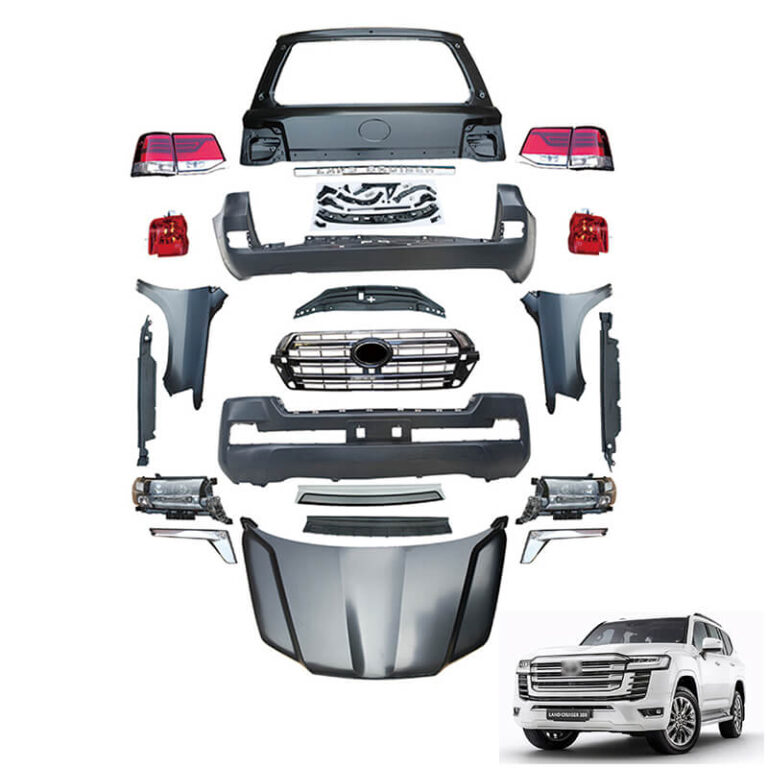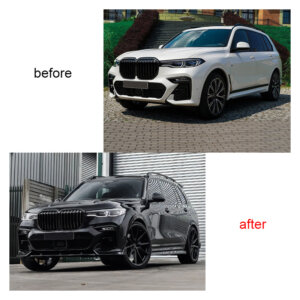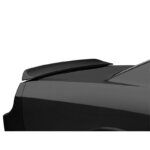Currently, there is a wide variety of car body kit materials on the market, such as PP, carbon fiber, etc., which can be quite overwhelming. In this article, we will explain in detail the characteristics and advantages of these common car body kit materials.
1. Carbon Fiber Material
SAILI aerodynamics kits offer a Carbon (carbon fiber) version of their products, which boasts high impact resistance, excellent heat resistance, and lightweight properties.
Carbon fiber is a new type of fiber material with strength greater than steel, a lower density than aluminum, superior corrosion resistance, higher heat tolerance than heat-resistant steel, and electrical conductivity similar to copper. Carbon fiber products are lightweight, highly heat-resistant, have a low thermal expansion coefficient, and are highly resistant to corrosion, making them an important structural material in the automotive industry. Car body parts made from carbon fiber, such as the body shell, hood, trunk lid, and doors, can significantly reduce weight, improve payload capacity, and enhance performance. These products are typically processed with epoxy coatings and vacuum graphite weaving.
2. Resin Fiber Material
Resin fiber material, also known as fiberglass (FRP or GRP), is a high-molecular polymer material made from natural or synthetic fibers that resemble natural resin. It is an amorphous semi-solid or solid organic material. Most resin fiber molds are handcrafted, which allows for the creation of various designs at relatively affordable prices, making it accessible to a broad customer base.
Resin fiber has good hardness, moderate toughness, and is fairly strong, but large impacts can cause it to break. However, small collisions are easily repaired. High-quality manufacturers produce finished products with good fitment, while lower-quality products may have inconsistent fit. Resin fiber has good heat resistance and is less likely to deform. It is commonly used in the front and rear kits and side skirts of cars.
3. Plastic Materials
Plastic materials mainly include ABS (Acrylonitrile Butadiene Styrene) and PP (Polypropylene). Original factory car kits are typically produced using molds for batch injection molding, which ensures good fitment and smoothness, though mold costs can be high.
PP (Polypropylene)
PP is a semi-crystalline material with good flexibility and ease of deformation. It is commonly used in water supply pipes, car kits, electronic products, food packaging, medical devices, and other fields. Due to its good toughness, PP is less likely to break, making it suitable for car body kits that require flexibility and deformation resistance.
ABS (Acrylonitrile Butadiene Styrene)
ABS is an improved polymer material with high strength, toughness, and ease of processing, making it suitable for mid- to high-end car kits. Compared to PP, ABS is harder and less likely to deform, especially at temperatures above 200°C. ABS is typically vacuum-formed, but to balance material characteristics, a small amount of PP is often added.
ABS products have a similar fitment and surface smoothness to PP, but they offer higher strength, toughness, and a longer service life compared to both PP and resin fiber. ABS is more expensive than PP and resin fiber but is less costly than carbon fiber, making it a popular choice for high-end automotive body kits.
| Resin Fiber | PP | ABS | Carbon Fiber | |
| Main materials | Polymer | Plastic | Composite material | Fiber fabric |
| Mold making | Manual molding | CNC | Semi-mechanical | Manual molding |
| Hardness and flexibility | General | Soft | Relatively hard | Moderate |
| Deformation resistance | Not | Easy | Not | Not |
| Wear resistance and temperature resistance | Average | Average | Good | Great |
| Fitment | Depends on the craftsmanship | Average | Better | Better |
| Vehicle model compatibility | Common | Common | Mid-range | High-end |
In summary, carbon fiber, resin fiber, and plastic materials (PP, ABS) each have their own advantages and disadvantages, making them suitable for different automotive needs. Carbon fiber is ideal for high-performance vehicles due to its exceptional properties, while resin fiber offers good craftsmanship at an affordable price, making it popular in the mass market. PP and ABS provide good strength, toughness, and low cost, making them common choices for OEM and mid-to-high-end car body kits. Depending on the vehicle owner’s needs and budget, choosing the right material can optimize both the vehicle’s performance and appearance.






